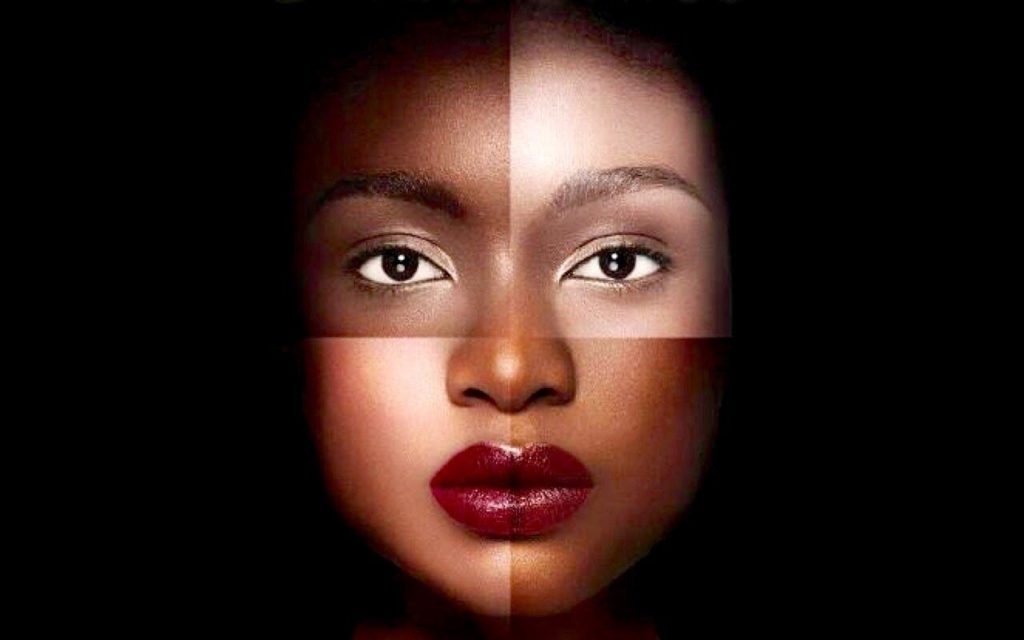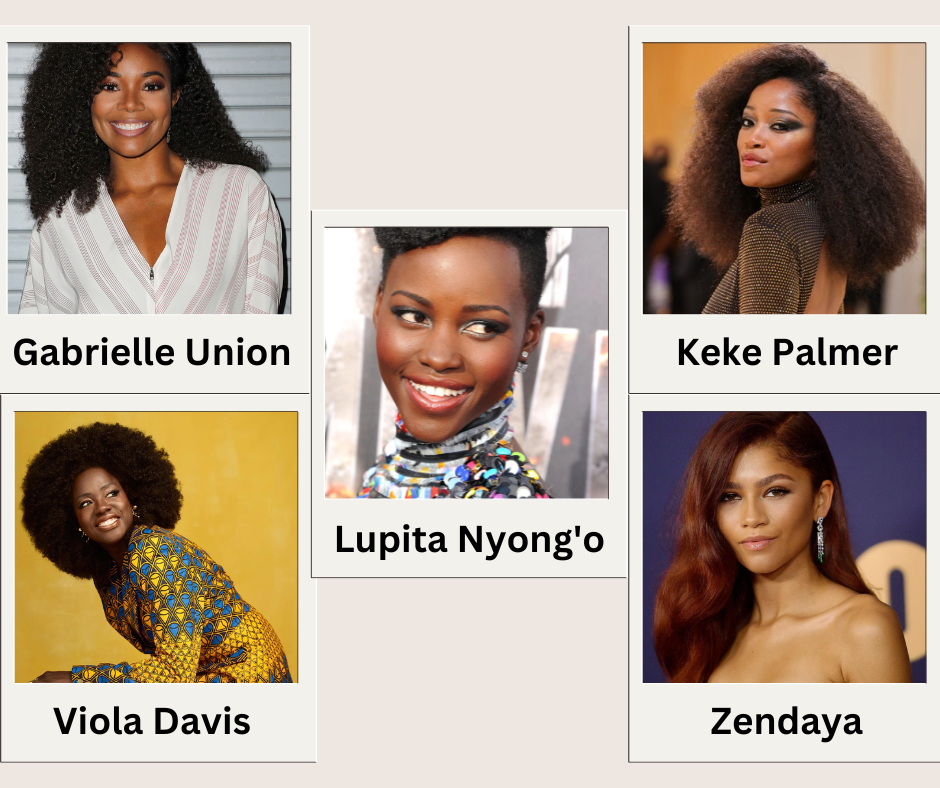'Hatching' - Social Media as the Modern Cardboard World
Hanna Bergholm's 'Hatching' shows us that the modern version of the cardboard world trope is social media.
Incluvie Foundation Gala - Learn More
Most interracialist films are superficial mirrors reflecting our simplistic views and wishes for race and ethnic relationships. You People is as superficial and shallow as its forbearers.
People often pat themselves on the back for watching “progressive” Guess Who’s Coming to Dinner style movies. They beam with pride despite the little to nigh nonexistent internal reflection about the colorist tropes and implications in said movies. The same people who dismiss race as “just” a social construct, as if their paycheck, relationships, morality, and national identity (to name a few things) are not also social constructs with real-world implications, will champion the “bravery” of movies that explore interracial love. How they can classify these relationships as interracial while purporting to not buy into race because it’s “just” a social construct is anyone’s guess. It is just as confusing as ever-color-struck Kenya Barris’ motivation for creating this mediocre redux. Barris is a controversial colorist, having espoused that mixed people will be “in” in the near future, implicating that he promotes the lighter skin, racially ambiguous aesthetic for practical purposes. It’s really just his latest excuse for colorism. Once again, a Black creator with problematic views on colorism, misogynoir, and questionable representation is elevated over more thoughtful ones.
You People follows the formula you expect from another slog into glossed-over sexual racism, desirability politics, misogynoir, and colorism disguised as a progressive commentary. This film is as shallow and superficial in its commentary as most American conversations regarding race relations. Ezra (Jonah Hill), a white male that you are allowed to assume is white based on his phenotype (remember this, it’ll be important later), falls for Amira (Lauren London). Amira is essentially coded as Black in the film, despite a throwaway line that tries to explain away why she has ambiguous features and lighter skin by suggesting her mother (Nia Long) has a white grandfather. The film already distrusts its own logic. If Amira’s phenotype is perfectly common for the daughter of two dark skin, unambiguously Black parents, why do we need a discount genetics lesson? Barris and Hill likely knew that many Black viewers would scratch their hair at the fridge logic and continued colorist tradition of casting Biracial and Multiracial actresses to play Black women on film. Something tells me they were not educating people on genetic admixture in African Americans. One can not help but wonder why Amira was not created as a biracial character. Could Ezra not have fallen in love with a biracial woman? Then there would be no need for this plot hole masking as a plot contrivance, and there would be no dark skin erasure in this casting.
But alas, the racist one-drop rule strikes again.
The movie makes as much sense as this setup. Predictable hijinks ensue as we watch the couple and their respective families follow a flattened “love conquers all/we are all one race the human race” contrived plot. There is nothing novel about this movie or interracial relationships (they’ve been happening long before Eurocentrism came along) despite it using “modern” in the tagline. There are a lot of white-centered interracial romance films that superficially gloss over the problematic aspects of the marriage market and its reliance on Eurocentric beauty standards. You People is simply another one.

Amira is described as a “real Black woman” in a cringe line from the film. What message does that send in a world where Biracial women of the African Diaspora are increasingly chosen for any romantic or non-struggle film portrayal of monoracial Black women? The film unintentionally shines a light on the interracial aspect of colorism practiced by lighter skin people who may or may not be nonwhite, against people who are darker skinned and/or Black. Zendaya summed up this obsession with lighter-skinned, racially ambiguous biracial actresses portraying Black women as it being “Hollywood’s acceptable version of a Black girl.” Many other mainstream actresses have also complained about colorism in the entertainment industry, like Viola Davis, Lupita Nyong’o, Keke Palmer, and Gabrielle Union. When mainstream films primarily portray white or white-passing women in romantic leads and only lighter-skinned, racially ambiguous women in the limited mainstream releases that feature women of color, they are sending an anti-Black message about who is worthy of love.

Dark skin erasure is a huge problem in the colorist, anti-Black portrayals filmgoers are being limited too. This is an all too common trope where leading roles, especially romantic ones, are reserved for lighter-skinned, ambiguous actors. While in contrast, support roles for older family members, side characters, or really young characters, are open to darker skin actors (with no guarantee of even those roles). Additionally, darker-skinned biracial and multiracial people are also constantly erased in media because we prefer our multiracial and biracial to look more like Jessica Alba and not Amara Le Negra or Amerie. The idea that anyone with even 1% African ancestry can be “Black,” but that we do not allow unambiguous Black actresses to play Biracial actresses. . .has wider implications if you follow the logic through. Why can’t dark skin, unambiguous Black people portray Biracial characters? Can biracial and multiracial characters portray white and non-Black characters? If not, why is this representation and co-opting only allowed in Black spaces? The difference is skin deep.

A common gaslighting tactic for these conversations about colorism is one termed “DNA Games.” Suddenly, everyone is a geneticist and has a distant relative who was born with a super rare phenotype for their cultural background. We are no longer allowed to identify who is Black because “Blackness” can look like anything. I saw this pseudo-intellectualism in action when people were defending Lauren London’s phenotype, saying it was ignorant to assume she was biracial based on her lighter skin and racially ambiguous features. Yet, these same people assumed Fatima and Akbar (cringe pseudo-African name) were Black, and that Ezra was White, based on their features. I’ve also personally experienced this pseudo-intellectualism in real life. As someone with stated Indigenous and Asian heritage, but who is darker skinned, I’ve never had someone defend me against “ignorant” people who assume I am Black and not multiracial. Quite the reverse, I’ve been asked to provide private genetic information to “prove” I have non-Black heritage. I have also watched people disparage darker skinned blondes and disbelief Black people with naturally blue eyes despite there being African people with these naturally occurring features. It seems the logic is not consistent, which points to colorism as the true premise and basis. The common denominator is again skin deep.
Movies like the trope namer, Guess Who (2005), You People (2022), and their less conspicuous cousins (Hitch, Just Mercy, Fruitvale Station) reflect colorist dreams and depictions of a narrow range of interracial relationships. The centering of whiteness in interracial depictions is omnipresent, as many people don’t even consider interracial relationships between POC or intercultural relationships of people from different cultures within the same Diaspora when they visualize interracial unions. Most interracialist films depict an unambiguous Black or Brown man and an idealized white, white-passing, or lighter-skinned woman. In films where the woman is the person of color, she is often portrayed by a multiracial/biracial actress with more ambiguous features and lighter skin tones (Zoe Saladana, Lauren London). She is almost always paired with a White male. One can’t help but see the But Not Too Black trope in action in such depictions.
Where are the films about a dark skin Sudanese woman and her brown-skinned Tibetan lover? Where are the films about darker skin biracial women and their Indigenous lovers? Are we allowed to see darker-skinned or unambiguous Asian women falling for Latino men? Where are the films that explore concerns about cultural differences from an intellectual space where we don’t demonize people for being worried their culture will be lost without intentional preservation? Why do these films gloss over fetishism and sexual stereotypes? Where are the romantic films celebrating Black women with natural hair and unambiguous features? Are LGBT films allowed to explore brown-on-brown relationships?
These are questions that films like You People are just too shallow to ever really answer. Despite its billing as some modern commentary on racial relationships, rumor has it that the two leads don’t even actually kiss, and that the scene was filled in with CGI. So much for bravery.
But well done interracial love films do exist, check out Romeo Must Die, Lovebirds, Something New, The Aliens, The Sun is Also A Star, and Boogie to start.
Related lists created by the same author
Hanna Bergholm's 'Hatching' shows us that the modern version of the cardboard world trope is social media.
Related movie/TV/List/Topic
Twisting what seems to be obvious setups and frameworks is what sets the story structure of Squid Game apart. I appreciate that this narrative is complex but not complicated; an easy enough plot to wrap your head around while still treating the audience like an equal participant in this social commentary